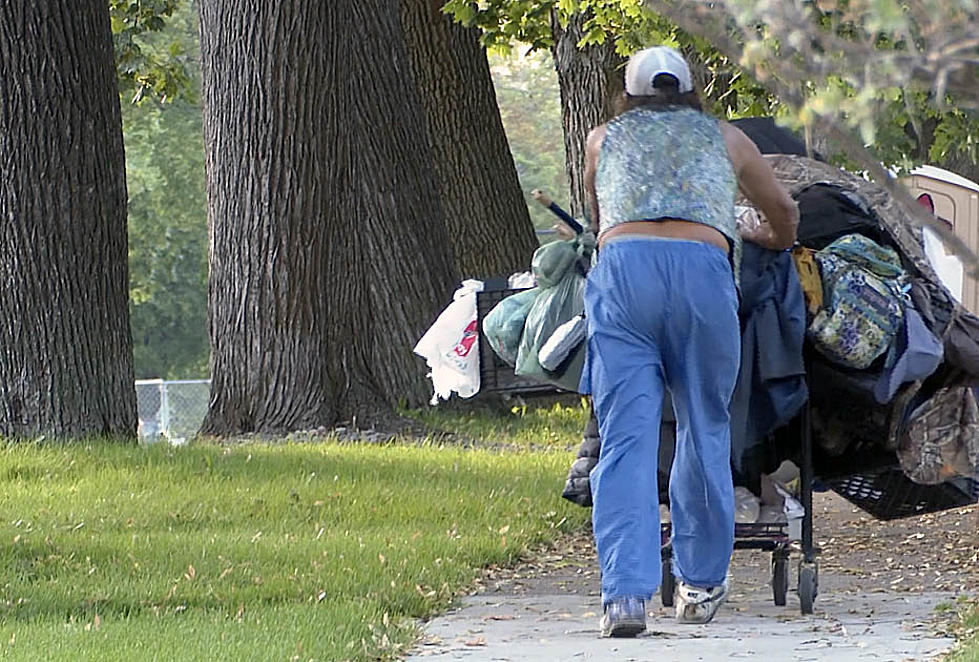
Mayor: ‘We will see tax increases this year;’ Missoula city budget enters final stretch
Martin Kidston
(Missoula Current) Calling housing, inequity and climate a city-wide goal shared by the vast majority of residents, Mayor Jordan Hess on Monday framed his new executive budget based upon the state's new property appraisals and said a tax increase was inevitable.
The mayor's new budget leans heavily on social services, including deep investments into the Affordable Housing Trust Fund, homelessness, contributions to the United Way's childcare program, and a number of new positions.
It also includes $300,000 to fund code reform, which is expected to streamline housing construction; $5 million for sidewalks and greenways; and roughly $5 million to extend the Bitterroot Trail across the Clark Fork River and light the Bitterroot Branch Trail.
The state on Monday sent the city its final taxable values upon which the city will base its final budget and levy more or less mills. Hess said the taxable numbers weren't ready for presentation, so the budget's impact on local tax payers isn't yet known.
“We work hard to deliver the core services our residents need and want,” Hess said. “We work hard to strike the balance between delivering these core services and innovating for the future.”
Hess maintained his stance that the state's tax system is “fundamentally broken.” He said the tax system has shifted from industry to residents and does nothing to tap into the the millions of tourists that visit the city each year.
He also cited taxation shifts within state government, which he said places a heavy burden on property owners.
“Those shifts have been really problematic for residential property tax payers and small commercial property tax payers in cities like Missoula and Bozeman,” Hess said. “We need thoughtful tax reform at the state level. Unless and until we have a more diversified source of revenue, cities and towns around the state will continue to struggle to fund local government.”
City invests in social services, despite failure of last year's levy
While it's debatable whether local government is required to fund social services, doing so plays a central role in the city's proposed budget. The county hasn't yet released the details of its proposed budget.
Hess said funding social services is a community priority. While voters turned down a crisis services levy last November, the new budget invests into the same areas the levy would have funded.
That includes $1.7 million for a second homeless shelter – shared in part with Missoula County – and $313,000 for the Crisis Intervention Team. It also invests $1.3 million to fund the Mobile Support Team and adds money to hire a new coordinator for crime victim advocates.
Hess described such investments as a community-wide goal that fits the city's new “lens priorities” of inequity, housing and climate. He added that his budget retains innovation.
“My personal top priority as articulated in this budget this year is opening an emergency shelter on a year-round basis,” Hess said. “Opening the Johnson Street shelter is also the highest priority for our non-profit partners who provide services to people who live without shelter.”
Opening the shelter carries operational costs, renovation costs and security costs, among other expenses like trash collection. The budget also includes a cost-of-living increase for city staff, and funding for Justice, Equity, Diversity and Inclusion – an issue that's being debated in Washington, D.C.
Efforts to achieve climate change goals are also included, along with livability to promote climate responsible growth.
“The budget accomplishes that in a variety of ways. It funds the completion of the 'Our Missoula Growth Policy and code reform project. This will guide how our community looks into the future,” Hess said. “It's probably the single most impactful thing we can do in this budget to create conditions where the private sector builds housing Missoulians can afford.”
Tax increase not yet set
Starting Wednesday, the City Council will consider a number of amendments to the budget, including council member Daniel Carlino's $4,400 request to increase the stipend for council members, and council members Mirtha Becerra and Gwen Jones' $40,000 request to fund outreach for a human rights project.
While there are also efforts to defund certain proposals, any additions may increase the budget, which carries implications for local taxpayers.
As it stands, Hess said, a tax increase is inevitable. The final recommendation on funding is expected on Wednesday, along with council debate on what to fund and what to cut, if anything.
Voters will also consider this November a $7 million levy to fund the expansion of the Missoula Fire Department. Passage of that measure would add more than $250 in annual taxes to a median priced home.
Fire levy aside, Hess said his executive budget ticks off the goals in the city's strategic plan. The tax increase isn't yet known.
“We all do better when we all do better. This budget reflects those values and directs investment toward our shared goals,” Hess said.
He added, “We're getting eaten alive by inflation. The cost that government entities face often increases at different rates than other costs. We're doing our best to balance some challenging priorities this year, and those inflationary struggles are real.”
